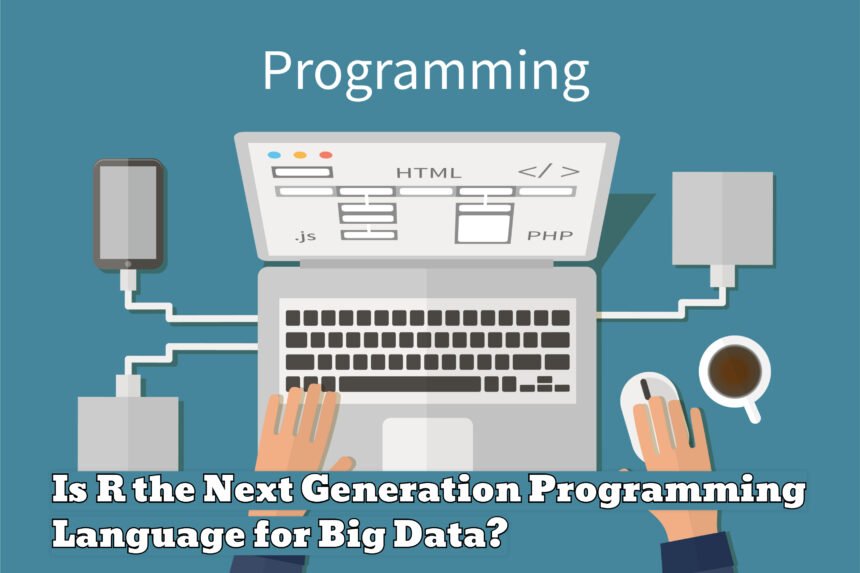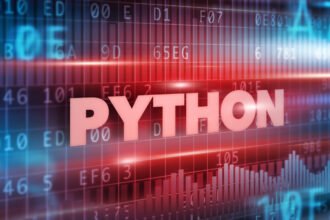Despite all its benefits, big data has created a number of headaches for developers. Many have discovered that traditional programming languages are inadequate for dealing with many of the challenges they encounter.
Data scientists and developers have several options when they need to process data:
- GUI based development platforms
- C-based languages (such as C, C++ and Java)
- The R language
R has been a fairly popular programming language for nearly 25 years, but it never gained as much traction as C and its predecessors. This is starting to change, since R has proven to be an excellent language for handling big data. Oliver Bracht of R-Bloggers wrote a post talking about some keynote speakers that have discussed the benefits of R. He writes that these speakers pointed out that R can handle larger data queries than other languages.
“Jan Wijffels proposed in his talk at the useR!-Conference a trisection of data according to its size. As a rule of thumb: Data sets that contain up to one million records can easily processed with standard R. Data sets with about one million to one billion records can also be processed in R, but need some additional effort. Data sets that contain more than one billion records need to be analyzed by map reduce algorithms. These algorithms can be designed in R and processed with connectors to Hadoop and the like.”
Let’s take a look at some of the programming languages data scientists can use.
GUI Development Platforms
There are a number of GUI development platforms. These platforms are very user-friendly, but they aren’t robust enough to handle big data projects.
As big data becomes more of a priority in the near future, many of these platforms will lose popularity. Developers must master traditional programming languages instead.
What C Languages Can (and Cannot) Do for Data Scientists
C and its derivatives have set standard for programming languages since 1978. C was the basis for C++, Java, Python and other powerful object-oriented programming languages.
However, while new C-based languages have powerful, object-oriented capabilities, they have certain limitations as well. They can’t handle big data queries as well as some other languages.
C languages have some great methods for handling data. Here are some reasons programmers use them for processing data queries:
- C is a great language for perimeter estimation and processing sensor data.
- The Java ecosystem is similar to Hadoop.
- C++ can be used to process radar data.
These languages are great for applications that require developers to handle several gigabytes of data at a time. However, they aren’t as robust when it comes to handling big data. C++ can be used for some big data projects, but pointers need to be referenced correctly. Programmers that aren’t highly skilled at using pointers will have a hard time with it.
The limitations of C languages have forced developers to look for alternatives. R is a newer programming language that is better suited for handling big data.
R is a Better Alternative for Querying and Processing Big Data
The R programming language has been around since 1993. It has been used around the world for the past 20 years, but still hasn’t been However, it has recently started to gain a lot more attention in recent years, because it is great for handling big data.
The Programming with Big Data in R project was developed a few years ago. It is used for data profiling and distributed computing. Their libraries are widely used on large, distributed platforms, but they also work well on much smaller systems. They can even be used on individual laptops.
Martin Heller, a contributing editor for InfoWorld, states that there are several reasons R is a great language for big data developers.
“There are R packages and functions to load data from any reasonable source, not only CSV files. Beyond the obvious case of delimiters other than commas, which are handled using the read.table() function, you can copy and paste data tables, read Excel files, connect Excel to R, bring in SAS and SPSS data, and access databases, Salesforce, and RESTful interfaces. See, for example, the foreign package.
You don’t really need to learn the syntax for standard data imports, as the RStudio Tools|Import Dataset menu item will help you generate the correct commands interactively by looking at the data from a text file or URL and setting the correct conversion options in drop-down lists based on what you see.”
Let’s look at some of these points in more detail.
Loading Data from Multiple Sources
Before big data became a household word, most applications aggregated data from a single source. That is no longer the case.
Big data led to the birth of the Internet of Things. Many projects now depend on data from numerous sources. Marketing applications are a classic example. They collect customer data from internal databases, social media and customer devices.
You need a programming language that can query and process data from all these sources.
Programmer Adaptability
Learning new syntax takes time. Unfortunately, versatile programming languages tend to have steeper learning curves, especially if you are working on something as complex as big data. You might want to use a training course to get started there are lots of providers (see here for typical example) .
R is an exception. As long as you understand the basic coding principles of it, you can use built-in libraries to handle big data.
Compatibility with Other Languages
One of the nice things about R is that you can use it in conjunction with other major programming languages, such as C++.
Ability to Extract from Cloud Platforms
If developers learn the dplyr syntax in R, they can use it to run big data queries with many different cloud platforms, including Google BigQuery and Amazon Redshift.
Will R Be the Future of Big Data?
Big data is changing our lives in many ways. However, few people talk about how it is changing the lives of programmers around the world.
Developers are looking for more robust solutions. They have found that R has many big data features that other languages lack, so it will probably become a more popular language in the near future.









